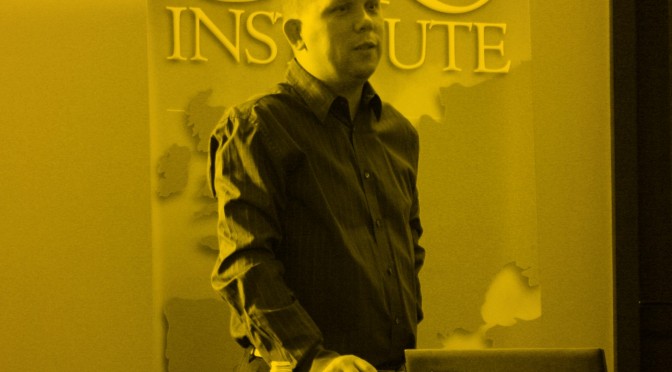Tag: Liberty
-

In Hungary, the rise of nationalism and racism
The rise of racism and nationalism in Hungary is a serious problem,
-

Economic freedom, the key to improving lives
Economic freedom leads to better lives for people as measured in a variety of ways. This is true for everyone, especially for poor people.
-

What type of watchdog are you?
To help citizens become government watchdogs, the Franklin Center for Government and Public Integrity is providing a new resource. It’s the Watchdog Quiz, and it will help you discover what type of role you will want to fill as a government watchdog.
-
Voice for Liberty Radio: David Boaz of Cato Institute
In this episode of WichitaLiberty Radio: David Boaz spoke at the annual Kansas Policy Institute Dinner.
-
Voice for Liberty Radio: Private enterprise and markets
Mary Beth Jarvis delivered the keynote address of the Kansas Republican Party Convention for 2014. She spoke on the topics of private enterprise and the profit and loss system.
-
Duck Dynasty and the secular theocracy
David Theroux analyzes the “Duck Dynasty” controversy and lets us know what it means for the state of America and religious beliefs.
-
WichitaLiberty.TV December 1, 2013
In this episode of WichitaLiberty.TV: What is libertarianism? Is it dangerous, as New Jersey Governor Chris Christie recently warned? David J. Theroux, who is Founder, President and Chief Executive Officer of The Independent Institute and Publisher of The Independent Review stopped by the WichitaLiberty.TV studios to answer these questions and give the liberty-based perspective on…
-
The broken window fallacy revisited
Recently David M. Hart, Ph.D., who is Director of the Online Library of Liberty Project at the Liberty Fund, spoke in Wichita on the topic “Bastiat’s Lessons for the 21st Century: The Broken Window Fallacy Revisited (again and again).”
-
Economic freedom improves our lives
Economic freedom, in countries where it is allowed to thrive, leads to better lives for people as measured in a variety of ways. This is true for everyone, especially for poor people.
-
WichitaLiberty.TV October 27, 2013
In this episode of WichitaLiberty.TV: David Boaz, Executive Vice President of the Cato Institute, visits the WichitaLiberty.TV studios and explains the ideas behind libertarianism and its approach to government and society. Episode 18, broadcast October 27, 2013.
-
USA versus You: The problem of overcriminalization
Overcriminalization is a threat to the liberty of Americans. A new booklet from Heritage Foundation explains.
-
WichitaLiberty.TV October 20, 2013
In this episode of WichitaLiberty.TV: Host Bob Weeks introduces the new book “Why Liberty,” published by Atlas Network and Students for Liberty. Next: We hear a lot about how school spending in Kansas has been slashed, that thousands of teachers and other school employees have been laid off, and that class sizes are soaring. Bob…